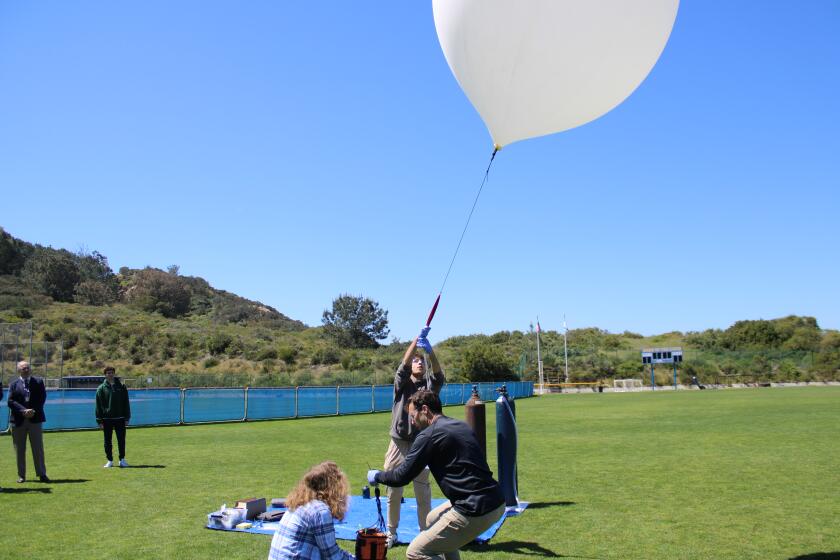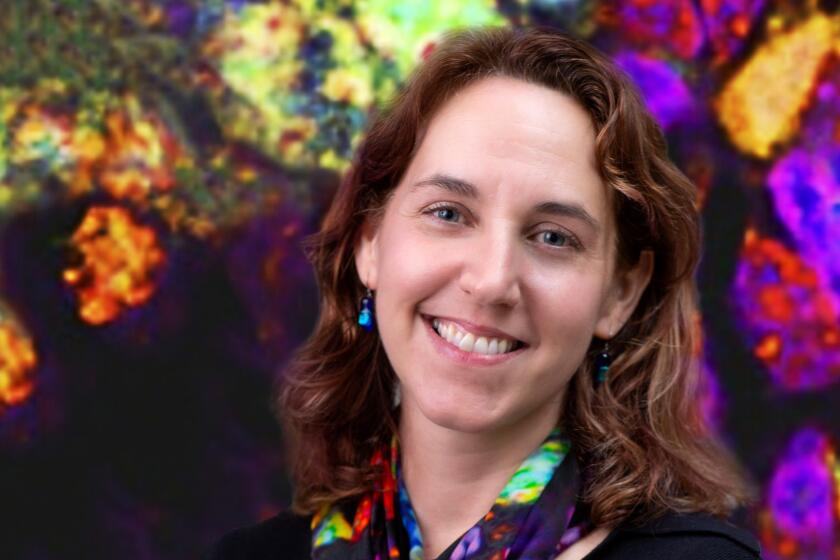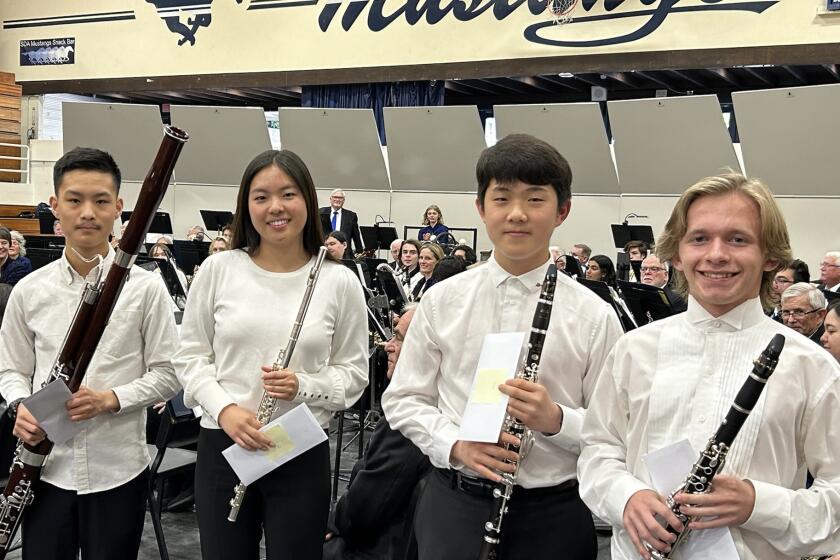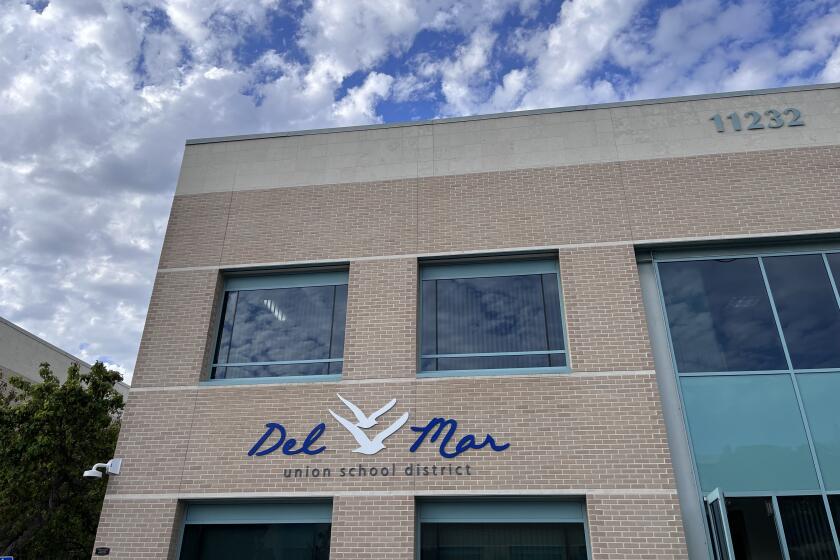Q&A: Del Mar’s Marvalene Hughes wins international accolade

When Marvalene Hughes was escorted onstage last month at a conference in China for female university presidents from around the world, little did she know that she and two others were about to be recognized for reaching the pinnacle of their careers.
The 8th World Women University Presidents Forum bestowed Hughes with the honor in recognition of four decades in higher education, during which time her prodigious fundraising skills helped her navigate a political landscape tilted against any woman or person of color—let alone both.
“I was escorted to the stage, and I was looking around to see what was happening,” Hughes recalled recently in her Del Mar home. “Then they made their announcement—I wasn't prepared, not for that. I fell apart.”
An ironic reaction for someone whose career has been to build universities.
From her doctoral work at Florida State University, Hughes has been on a path that went through San Diego State University and the University of Minnesota before taking over as president of Cal St. Stanislaus in 1994, making her the first woman of color to lead a CSU school—and one of the first female university presidents in the country. For 11 years she tapped into deep pockets of the Central Valley, funding seven new buildings by finding revenue streams where none were thought to exist. After leaving Stanislaus, Hughes took the reins at Dillard University, a historically black college in New Orleans. Weeks after arriving, Hurricane Katrina ravaged the city and left the Dillard campus in ruins. For six years she tirelessly lobbied federal officials and private donors as she lifted Dillard from the murky depths.
At those two schools alone, she raised several billion dollars.
Over the past five years, the administrative phase of her career has given way to being a mentor and role model for up and coming generations of female educators. It was during her time at Stanislaus that she was asked to be a founding member of the World Women University Presidents Forum. Meeting every other year at a rotating lineup of Chinese cities, the conference has become an unparalleled forum for women educators to share perspectives, challenges and needs.
This newspaper talked with Hughes upon her return from China about the necessity of a Me Too movement overseas and why the U.S. seems to lag behind when it comes to women in higher education.
DMT: You've been to all eight UCWP conferences. Why is it important to you to keep going?
Hughes: There's not another international women's university conference anywhere. Women don't have a separate conference in the United States, but often I think we should. We go to the regular big conferences like the American Council on Education, and the American Association of State Universities and Colleges, but within those, women form an internal, separate group that meets for a few hours each day during the conference. To me that signals the need for some identity that relates to gender and also race.
DMT: What do you see the conference accomplishing?
Hughes: From my own perspective, I have an opportunity to meet with women and discuss their agendas from around the world. There were 58 countries represented in this group of people. And they are the heavy hitters. I learn a lot from it, and I wish we had one in America. I think a lot of what's going on now around the Me Too issues and all of that, that's not going to happen in those countries because the women there are on top of it. Almost for every university vice president in China, there is a woman appointed to be a vice president for women. So there are women in positions of power there unlike in the United States. It's those women who have access to all this money. And I'm thinking about a woman from the poorest part of India: when we started out, she had just been appointed, and she didn't ever believe she would get a building or be able to do anything for education. Now, 10 years or so later, she's gotten her building and she's just beaming about the kind of education she's able to provide.
DMT: What has been your secret to fundraising? What is the knowledge that you're passing down?
Hughes: There are three things people identify -- and I've gone back and looked at my records and they are true -- the ability to fundraise and build a university and focus it; the ability to understand how to cultivate faculty, students, staff and make them part of the process, make it all-inclusive. I've gotten all kinds of awards for that, and the ability to understand how to manage the unions that want to make distractions on campus. It's rampant here, and if they trap you, of course you can get fired. California has the strongest union, and the founder of that union was on my campus in Stanislaus when I got there. I befriended him, caught him off guard, so we didn't have a problem until after I left. After I left, the union went wild and the two presidents after me were fired.
DMT: Over the 16 years of the conference, how have the topics changed and what new issues are they talking about?
Hughes: Women are reaching back to understand why—because of biology in the first place—they were told they were not supposed to be presidents or leaders. And what we see now is that those women who are leaders are exceeding a lot of men. So we're trying to pull that dynamic together and not allow the world to revert to what it was. Politically, economically, socially, it shouldn't happen again. Women were silenced.
DMT: So it's about solidifying the gains that have been made?
Hughes: It's that, and it's creating new avenues and building networks. I have networks around the world now. When I go to Australia and New Zealand, somebody's waiting for me. I spent several days of my trip to New Zealand in the library this past summer because I wanted to understand how they were so far ahead of America politically in terms of including women.
DMT: How do you feel when you see how far the conference has come?
Hughes: It's one of the most refreshing things I've had the opportunity to experience. Just sitting back listening to all those women from all those different countries, I thought, 'This is it. It's coming, it's coming.' You don't get that going to the conferences that we have here.
DMT: Why do you think that it's been so hard to change here?
Hughes: Because we were the founders of discrimination. We say we are a democracy, but we were the founders of discrimination, and we haven't overcome a lot of it. It's out there in the streets. But the people who founded this country decided that was the way it was supposed to be. So I think we've found an avenue now to impact the world, but it has taken a lot, it has taken a lot. In America we are materially fortunate, but we don't have all of the right values driving what we do sometimes.
DMT: What still frustrates you in education?
Hughes: In my speech at the previous conference, I challenged everyone because we are still following the same old curriculum. We're still living by Aristotle and Plato, and we shouldn't be. There's so much that needs to be done in terms of equality for women in education and demonstrating what that means. Equality for women doesn't mean trying to push men out, it just means that we stand together. I also talk about issues like peace. Why are we not teaching peace? Why are we not all over it? Time is running out on us. Things like peace need to be an integral part of university learning, in addition to sciences and math. Why are we killing each other? I don't get it. That's what has occurred as a result of the world we lived in.
Get the Del Mar Times in your inbox
Top stories from Carmel Valley, Del Mar and Solana Beach every Friday for free.
You may occasionally receive promotional content from the Del Mar Times.





